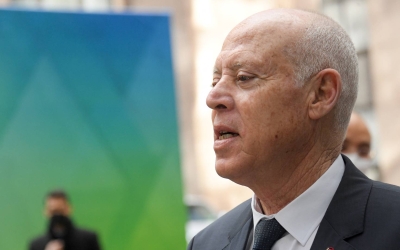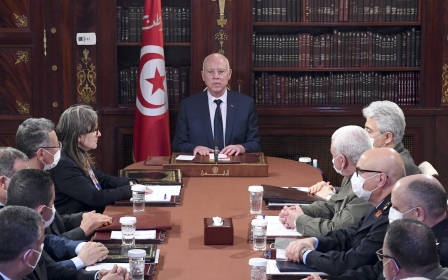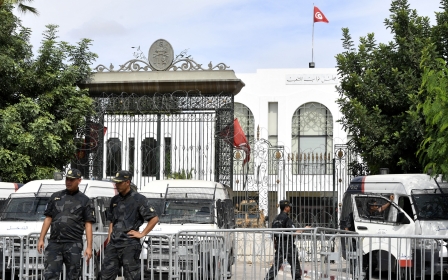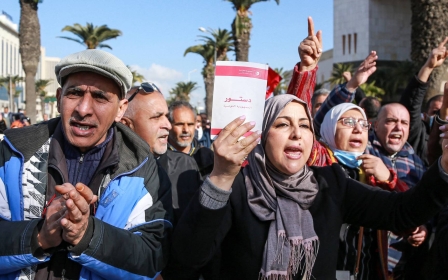Tunisia: MPs summoned for questioning before anti-terror squad
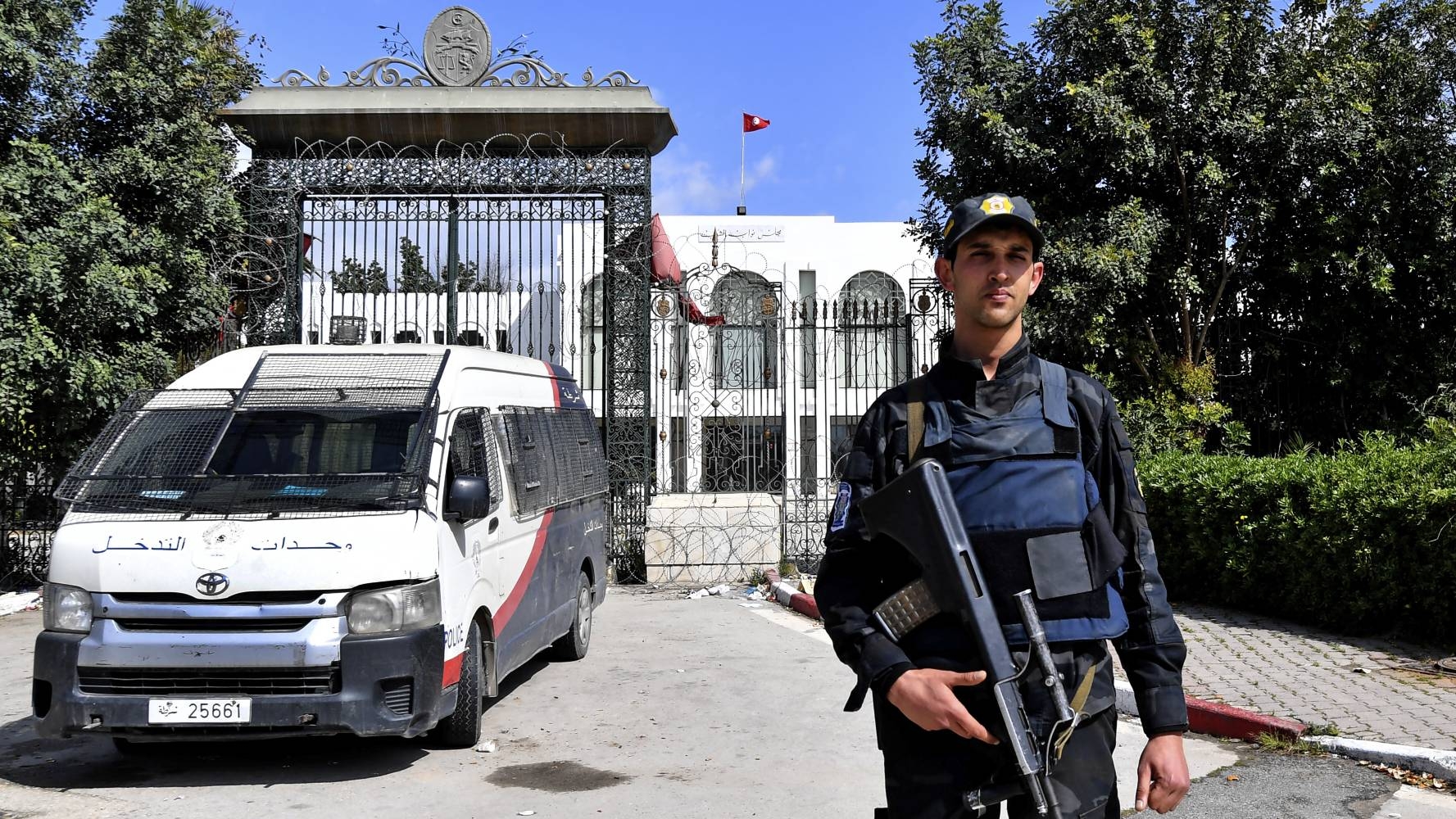
A group of Tunisian MPs was summoned on Thursday to appear before the anti-terror squad a day after President Kais Saied forcibly dissolved the country's parliament, according to parliamentary speaker Rached Ghannouchi.
Minister of Justice Leila Jaffal said she had asked Tunisia's public prosecutor to open legal proceedings against 30 MPs, whom Jaffal said were conspiring against the state's internal security.
Saied dissolved the country's parliament on Wednesday and said MPs would be prosecuted, extending an eight-month power grab and intensifying the country's political crisis.
The president made the announcement at a meeting of the National Security Council, hours after parliamentarians held a plenary session online and voted through a bill against the "exceptional measures" taken by Saied last year.
Imad Khamiri, the head of the Ennahda party, wrote on Facebook on Thursday that he had been summoned to appear before the anti-terror squad in the El Gorjani area of the capital Tunis.
New MEE newsletter: Jerusalem Dispatch
Sign up to get the latest insights and analysis on Israel-Palestine, alongside Turkey Unpacked and other MEE newsletters
"Didn't we call for abiding by the constitution and warn against violating the laws, and we have endeavoured to return to the democratic path and consolidate the state of institutions. We are treated as elected representatives of the people in this way?!" he wrote.
Other MPs have written on their social media pages confirming that the anti-terror squad had summoned them for questioning.
Some 123 MPs took part in Wednesday's session, which was convened to vote on controversial measures taken by Saied last July, which included the suspension of parliament and the sacking of the prime minister, along with the seizure of judicial and legislative powers.
The move was denounced as a coup by most political parties.
Towards the end of the Wednesday session, 116 MPs voted in favour of the law that was intended to invalidate Saied's power grab. Parliament required 109 votes to pass a law.
In a statement, the Ennahda movement said that "the convening of parliament and its decision to end the work of the exceptional measures is neither a coup nor a delegitimisation of anyone, but rather a return to a legitimate institution elected by the sovereign people."
Middle East Eye delivers independent and unrivalled coverage and analysis of the Middle East, North Africa and beyond. To learn more about republishing this content and the associated fees, please fill out this form. More about MEE can be found here.


